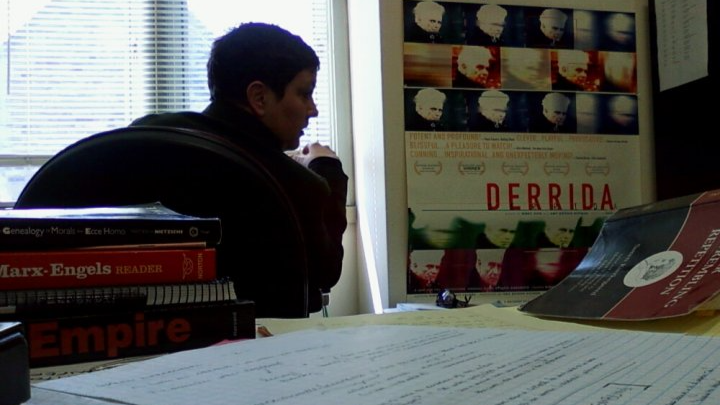Short story: Christian Brothers University terminated my position as a tenured faculty member in the Spring of 2024 in violation of the terms of my contract, without the due-process provisions provided in the Faculty Handbook, in violation of the AAUP's standards for declaring "financial exigency" and, perhaps most grossly, in violation of their own expressed reasons for my termination.
Longer story:
In the Spring semester of 2024, I was terminated from my tenured position at Christian Brothers University along with several other of my colleagues (both tenured and non-tenured), under the auspices of CBU's ad-hoc declaration of "financial exigency," in violation of my contractually-secured 1-year notice, and in violation of many other protections of tenured faculty articulated in our contracts (and, by extension, the CBU Faculty Handbook). In my termination meeting with former President Dave Archer (which I recorded), he explicitly stated that my specific position was not selected for termination due to "financial reasons."
Moreover, in a July 19th public television interview with President Englert and Board of Trustees Chairperson Emily Greer, also aired on Memphis public radio WKNO, they both confirmed that CBU ended the 2023-24 academic year with “no debt” and “in the black.”
("Behind the Headlines" interview with Englert, Greer, and Eric Barnes link here: https://www.pbs.org/video/christian-brothers-university-7n4bbq/)
In January 2024, CBU offered terminated faculty a "severance agreement" BUT ONLY ON THE CONDITION THAT terminated faculty forfeited their right to pursue an appeal of their termination (internally, per CBU's normal due process procedures) as well as any future right to sue the University for breach of contract or file complaints of its violation of EEOC standards for discrimination in hiring and/or firing. When I was offered this settlement agreement, I still had an "open" appeal of my termination pending. The committee charged with adjudicating my appeal (the Faculty Review Committee) delayed consideration of it until 24 hours before I was forced to sign (or refuse to sign) the severance agreement, effectively denying me my internal due process affordances.
Subsequent to my decision to not accept their severance offer, CBU and its representatives did everything possible to intimidate and threaten me, including orchestrating an entirely fabricated "emergency" during my last day of classes, allegedly based on a social media post in which I wrote: "Starting my final week in the classroom tomorrow. It's been a good 20-year run and I think I made a positive impact on at least a few hundred students' lives. Plan on going out with a bang [firecracker emoji]."
They claimed that my social media post (2 days past already) represented a "campus threat."
After being dramatically removed from my classroom and forced into a meeting with Dean Tulia, VP Ron Brandon, and campus police/MPD, I calmly explained the obvious difference between a "firecracker" emoji (indicating a celebration) and a "bomb" emoji (which could be read as a threat, but which I did not use). I informed everyone in the room that they were more than welcome to check my person, my vehicle, or my bag if they thought I was a legitimate threat to campus safety—they did none of these—and so I returned to teach my last class of the semester.
[NOTE: Any REAL "threat to campus security" would not have been handled in this way. This was blatantly retaliatory. None of the participants in this charade—Dean Tawney Tulia, Interim President Ron Brandon, campus security, or MPD—would have, or should have, acted in the ways they acted if any of them believed I posed a real and present danger.]
Having been denied the normal (internal) institutional appeal process that I should have been afforded as tenured faculty, I immediately filed an EEOC complaint... and I have been mired in the process (and expense) of that for a year now.
In the interim, the American Association of University Professors (AAUP) reviewed my case and has sent TWO separate letters to Christian Brothers University insisting on my immediate reinstatement, which CBU has ignored. According to the AAUP, CBU's actions in terminating my appointment manifestly violated AAUP-recommended standards regarding termination of tenured faculty for financial exigency on all three of the following points:
(1) the financial circumstances constitute bona fide exigency (a crisis that “fundamentally compromises the academic integrity of the institution”);
(2) an elected faculty committee has an appropriate role in deciding whether conditions of exigency exist, and then the faculty or an elected faculty body plays the primary role in decisions about where the academic program cuts are to be made; and
(3) affected individual faculty members receive appropriate due process and consideration.
CBU's retaliatory actions have extended well beyond my termination and continue. Their lawyers have delayed the EEOC process at every turn, hoping to bankrupt me before we negotiate a final settlement, but they have dramatically underestimated my resolve.
Any help you can offer is much appreciated. #Solidarity
Organizer

Leigh Johnson
Organizer
Memphis, TN
